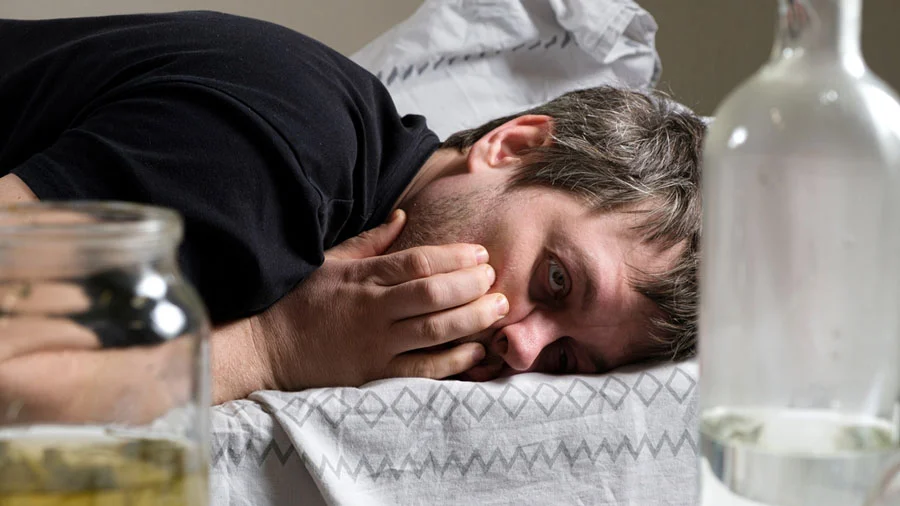The Importance of a Safe Setting in Getting Through Alcohol Withdrawal
Alcohol withdrawal is by far the most dangerous of all forms of withdrawal. Alcohol is one of the few substances in which the withdrawal symptoms can be fatal. You cannot and should not mess around when it comes to overcoming alcohol dependence. Take it from someone who tried multiple times and almost died in the process.
One of the scariest parts of alcohol withdrawal is the alcohol shakes. For someone suffering from chronic alcohol consumption, this is one of the most common withdrawal symptoms. If you stop drinking alcohol following long-term alcohol abuse, the shakes occur because your brain is still in a heightened state of alertness. This is where the alcohol shakes come into play.
But the key question is this: How to stop alcohol withdrawal shakes?
Hydration, a nutritious diet, and stress management are the three main ingredients in helping overcome alcohol shakes. But you aren’t out of the woods yet. There is a lot that goes into overcoming an addiction. Getting through detox is the first step in a series of equally important steps. Treatment for alcohol shakes often involves medical supervision, including the use of benzodiazepines and comprehensive addiction treatment programs.
Keep reading to learn more from my hard-won experience, get the shakes under control, and find out more about how I eventually was able to achieve lasting sobriety!
The Difficulty Of Overcoming Alcoholism
All forms of addiction come with their own hurdles. As someone who struggled with alcohol use disorder, I can say that alcohol abuse is one of the most difficult forms of addiction to overcome. Alcohol is everywhere, and is the most socially acceptable form of substance abuse. Society doesn’t look at a heavy drinker the same way that it looks at a heroin addict.
Because of my time at South Shores Detox and Recovery, I overcame what I thought was impossible. Even though I dealt with terrible alcohol withdrawal, I came out on the other side of it as a new person. So how can you help someone not only decide to quit drinking but also overcome severe withdrawal symptoms? Continue reading to learn how I did it, and what your options are.
Avoiding The Discomfort Of Withdrawal Symptoms
I resisted addiction treatment for years. I started drinking in high school and was a full-blown alcoholic by the time I was in my early twenties. My physical and mental health drastically decreased as my alcohol intake increased. I was able to deal with the hangovers, but it wasn’t too long before I began to notice signs of more severe alcohol withdrawal.
Alcohol withdrawal symptoms are bad enough to scare anybody from quitting drinking. I tried many times, but always went right back to drinking to avoid withdrawal. Excessive alcohol consumption will make the mild withdrawal symptoms quickly become more severe in their intensity. It’s something I wouldn’t wish on anyone.
What Withdrawal from Drinking Does To The Body
Alcohol withdrawal symptoms occur very shortly after your last drink. The first time I tried to quit cold turkey, it only lasted two days. Within the first six hours, common symptoms include headache, nausea, vomiting, and excessive sweating. The alcohol shakes usually begin in the form of shaky hands, and then begins to affect the rest of the body soon after.
The alcohol shakes are a result of a disruption in the central nervous system. Because alcohol has a depressant effect, it slows brain function. As you continue to drink, the brain tries to overcompensate for this lack of function by increasing nerve activity. This leads to a heightened state of alertness.
When you quit drinking, this heightened state continues. It’s almost impossible for the body to go back to normal in a timely manner, so withdrawal symptoms occur as a result of the brain struggling to adapt to the lack of alcohol intake. This is where the alcohol shakes come from.
What Withdrawal Does To The Mind
The effect that withdrawal from alcohol has on the mind is just as brutal as the physical effects. We all suffer from low mood when we are physically ill. You’re mental and physical health feed off of each other. If you feel good physically, it’s easier to have a more positive attitude. The symptoms of alcohol withdrawal will almost always lead to a low mood.
Unfortunately, the mental anguish of withdrawal is what leads people to give up and go back to drinking. A lot of addicts experience intense anxiety and depression during alcohol withdrawal. Some addicts end up harming themselves as a result of withdrawal.
Typically, when you are dealing with addiction, you are avoiding your mental health. When you try to get clean, all of the issues you have been avoiding come to the surface. It’s these issues that cause many people to continue their addiction. When I was struggling with alcohol addiction, I went out of my way to avoid my personal responsibilities and my mental health.
How To Deal With Severe Alcohol Withdrawal Symptoms
The scariest of all withdrawal symptoms is delirium tremens, or “DT’s” as they are commonly referred to. Delirium tremens doesn’t affect everybody who suffers from alcohol addiction, but if your addiction is bad enough, your chances of suffering from DT’s increase dramatically. Alcohol tremors are a big part of DT’s. When delirium tremens occur, it results in the usual withdrawal symptoms. Anxiety, shakes, and vomiting.
As the condition progresses, you begin to suffer from auditory and visual hallucinations. This is among the most severe consequences of alcohol addiction. For many drinkers, your mental health never returns to normal following delirium tremens. Many succumb to the disease due to the life-threatening nature of this severe form of withdrawal.
Other Withdrawal Symptoms Of Heavy Alcohol Consumption
If all that I mentioned above doesn’t sound bad enough, guess what? There are other withdrawal symptoms that can occur as a result of regular alcohol consumption. One of the issues that I dealt with personally was a gray complexion. It looked like the life was literally sucked out of me. My appearance was frightening not only to others but to myself as well. This gray complexion is a result of a lack of vitamin A, which alcohol depletes from the body.
Other withdrawal symptoms may include clammy skin, rapid heart rate, and mood swings. When I finally went to detox at South Shores, I was very irritable and difficult to deal with. I felt very remorseful after the fact and even apologized to the medical team that helped me. They took no offense whatsoever. Any medical professional dealing with a withdrawing addict is well aware that things will get testy.
Don’t Withdraw Alone – Seek Medical Treatment
Many addicts try to get clean cold turkey. There can be a number of reasons for this. First of all, there are a lot of addicts out there who may not be insured and simply can’t afford rehab. Another reason is a lot of addicts believe they can do it on their own. People are protective of their addiction. I know I was. There wasn’t anything anyone could tell me. I was gonna figure it out myself. It didn’t work out so great for me taking this approach.
Sometimes we all need a helping hand. Asking for help doesn’t mean you are weak. As a matter of fact, it’s the exact opposite. It is bold to admit that you need help. It’s easy to dismiss people and be hard-headed. Many addicts think they’ve got it all figured out. When you finally realize that you can’t do it on your own, you become more self-aware. Self-awareness is a vital part of the recovery process.
Avoid Experiencing Alcohol Shakes
To get through the more uncomfortable withdrawal symptoms such as alcohol shakes, essential nutrients play a big role. Simply put, there’s no way to fully control how your withdrawal will go. You can do everything right, but you will still feel some level of discomfort. The medical team at South Shores did everything they could to make sure I was hydrated and eating right.
Your stress and anxiety level plays a big role in how bad alcohol tremors might be. In order to mitigate these feelings, there are a number of approaches you can take. Avoiding sugar is number one. Sugary drinks like soda are off the table. Water is your best friend during withdrawal. Yoga or meditation can also play a big part in reducing your anxiety level.
Recovering From Severe Alcohol Addiction
Once you get through alcohol detox and all of the withdrawal symptoms are gone, the real work may begin. This is when you must do a lot of self-work. You don’t just get sober and then go about your business. Addiction recovery is a long-term process. Things can be very emotional during the early phase of recovery. You might feel like you’re doing great one day and then be ready to give it all up the next day. There are a lot of highs and lows.
It’s important to recognize the warning signs of relapse. Many addicts relapse within the first weeks or months of sobriety. Adjusting to a new lifestyle is a lot to handle. It isn’t easy for anybody. This is one of the biggest lessons I’ve learned from going to group meetings. Staying sober is a full-time job. It can be exhausting at times, but it’s worth every moment of weakness.
Embracing the Sober Lifestyle is Made Easier at South Shores
Once being sober becomes the norm, your life opens up completely. I try to keep a level head on my shoulders at all times, but I’m aware enough to know that I might have bad days. I might feel weak at times, and that’s totally fine. It’s how we react in those weak moments that make all the difference.
When you talk about your feelings with like-minded people, it has a domino effect. I’ve gone to meetings feeling like I was a second from relapse, and just hearing the positive stories from others in recovery was enough to change my attitude. Recovery is a community process. Because of my time at South Shores, I am now an active member of the recovery community, and I couldn’t be more thankful.
If my story strikes a chord, and you are trying to overcome the shakes on a regular basis, consider making the call to Eric and the team at South Shores. That call is something I am grateful for each day, and I am sure they can offer help to you as well!




